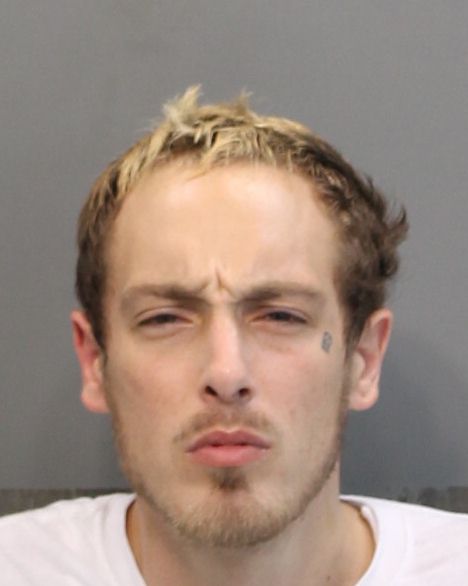A Hamilton County judge has sent the second-degree murder case against an alleged Chattanooga heroin dealer to a grand jury.
Justin Domino, 31, is accused of supplying heroin to 22-year-old Tanner Wade, who was found dead July 2 in a Courtyard by Marriott hotel room at 2210 Bams Drive near Hamilton Place mall. Domino told police that he, a woman and about five others were in the hotel room "partying and having a good time."
An autopsy revealed Wade died as a result of fentanyl and methamphetamine toxicity, a mixture Chattanooga police investigators say Domino is known to use and sell. But, in court Tuesday morning, Domino's attorney, Brandy Spurgin-Floyd, pointed out that, according to the criminal affidavit, her client admitted only to using and having supplied heroin.
And, "if this is a fentanyl toxicity death - and I know that that is what the medical examiner has opined - we do not have any labs from what Mr. Domino had to show that what he had would have led to that toxicity," she said.
Narcotics investigator Terry Topping told General Sessions Judge Christine Sell drug dealers often mix their supply with other substances to stretch it out and then add fentanyl once the substance becomes too weak.
Topping said Domino had been on the department's radar since multiple overdose survivors named him as their supplier, Topping said. In a criminal affidavit, Domino is described as being "well known" by local drug users, as well as the police department's narcotics unit.
Domino, however, has not been convicted of dealing heroin, Spurgin-Floyd noted.
He became a person of interest in Wade's death after multiple people who were at the hotel room identified him as being there and having brought the heroin. Domino also admitted to supplying the heroin, though he claimed he didn't sell it. It was free, he told police.
But police didn't buy that.
"The possibility exists he could have given it for free," Topping said. "If he gave it for free or if he sold it, he still provided it."
Initially, according to the criminal affidavit, it was reported that Domino didn't try to help Wade before he left the hotel room that July morning. But in court, Topping said Domino did say he tried to administer CPR on Wade before leaving the scene with a woman who had been at the party.
About two hours later, after the hotel room had been cleaned, the woman, who has not been charged, returned and called police "to report a mysterious unknown person in her hotel room deceased," court records state.
The autopsy revealed Wade had been dead for at least 12 hours before the 911 call.
When Domino was arrested on Aug. 13, he'd been stopped after a call about two people "nodding off" in the parking lot of a local diner. He was questioned about 30 minutes later about the fatal overdose.
"You knew at the time of the interview that he had been stopped after a complaint from nodding off at the city cafe and suspected of being too intoxicated to drive and you interviewed him?" Spurgin-Floyd questioned Topping.
Nevertheless, Sell said she found "substantial proof" of probable cause before sending the case to the grand jury.
Some prior, unrelated charges against Domino were dismissed, but the second-degree murder charge and additional drugs- and firearms-related charges that were filed as a result of the traffic stop have been bound over to the grand jury.
Domino is just the latest dealer to be held responsible for the death of someone who bought drugs from them and then overdosed.
State law allows dealers to be charged with second-degree murder if they unlawfully distribute Schedule I or Schedule II substances and the substances kill someone.
Schedule I substances include opiates, opium derivatives, hallucinogens, depressants and stimulants that do not have medical uses in the United States. Schedule II substances include substances similar to those categorized as schedule I, but that have medical use, though very restricted.
That has been the law for many years. But in 2018, it was expanded to specifically include fentanyl or carfentanil as substances for which dealers can be charged with second-degree murder.
Spurgin-Floyd told the Times Free Press she hopes the statute gets challenged "because of the issues of discouraging overdose reporting and problems with proving what substances actually caused a death, and whether the deceased intended for death to be the result of their use of the substance unbeknownst to anyone who might have supplied it."
Contact Rosana Hughes at rhughes@timesfreepress.com or 423-757-6327 with tips or story ideas. Follow her on Twitter @HughesRosana.

